
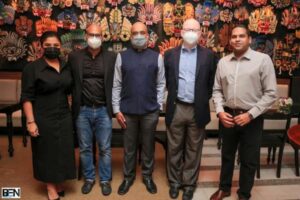
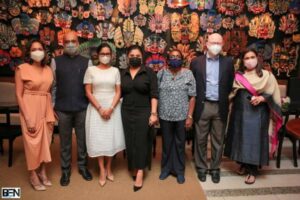
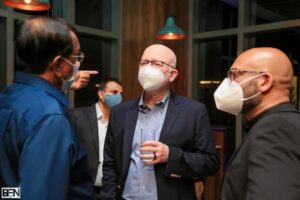

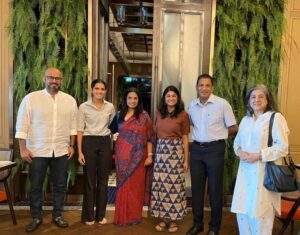
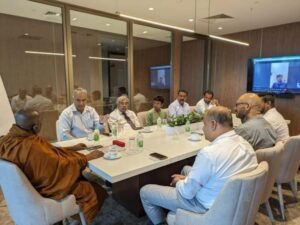

1. IDAT Project
Connect To Care has played an instrumental role in facilitating the project and ensuring it remains on track to meet its objectives. The IDAT project has faced implementation challenges, including changes in government and at ministries, which have made securing the necessary data and agreements to build such a complex tool difficult. Coordinating a vast number of stakeholders public, private, civil society organizations (CSOs), and implementing and development partners has also proved challenging.
C2C has worked relentlessly to manage these challenges by securing relevant permissions, facilitating meetings, and going beyond mere facilitation to create key project structures, such as steering and executive committees, while also locating project champions for IDAT at the highest levels of government.
Read more
2. Nutrition Project
One of the most effective, scalable, affordable, and sustainable ways to address micronutrient deficiencies is the fortification of staple foods (rice, wheat flour, oil, milk, and salt). Food Fortification is a scientifically proven, cost-effective, intervention. Fortification involves adding minute quantities of vital nutrients deficient in the diets of a population such as iron, folic acid, vitamin D, and vitamin A to commonly consumed foods like rice, wheat flour, oil, and milk. Micronutrient fortification of widely consumed staple foods is also considered to be a sustainable solution for improving the health of entire communities as it prevents deficiencies from occurring while minimizing the need for behavior change.
Rice is a staple food in Sri Lanka, an estimated 17 percent of the 22 million population is food-insecure according to the FAO-WFP Crop and Food Security Assessment Mission Report 2023. The 2024 school meal program, themed ‘Healthy Active Generation,’ strives to address nutritional issues among students, enhance daily school attendance, cultivate healthy eating habits, elevate educational achievement, and promote local food culture. This year, the program extends its benefits to 1.6 million students, encompassing primary students from 9,134 government schools and smaller schools with fewer than 100 students.
Read more
3. DIGITAL PUBLIC INFRASTRUCTURE
Digital Public Infrastructure (DPI) is key to driving economic growth, improving service delivery, and fostering social inclusion. It serves as the backbone for various digital services, including payments, identification, and data exchange systems. Sri Lanka is committed to strengthening its DPI as part of its National Digital Economic Strategy 2030 to modernize its digital ecosystem and build a comprehensive policy framework. The country is also participating in the global “50-in-5” initiative to implement DPI for achieving Sustainable Development Goals (SDGs).
Read more
4. CLIMATE INITIATIVES
Sri Lanka’s biodiversity conservation strategy, supported by Connect to Care, has identified nine key biodiversity projects, focusing on marine and terrestrial ecosystems, habitat restoration, species conservation, and sustainable management of protected areas. These projects aim to align with the Global Biodiversity Framework’s 30×30 pledge, which targets protecting 30% of the country’s land and marine ecosystems by 2030.
Read more
5. LIVESTOCK AND DAIRY
Between January and August 2024, Connect to Care (CTC), in partnership with the Bill and Melinda Gates Foundation (BMGF), conducted preparatory work for a Dairy Program to support the Sri Lankan government’s objectives. This involved understanding the goals of the government and the political and economic context of the dairy industry, which currently relies heavily on imports—approximately $400 million worth annually—while producing only 38% of its needs.